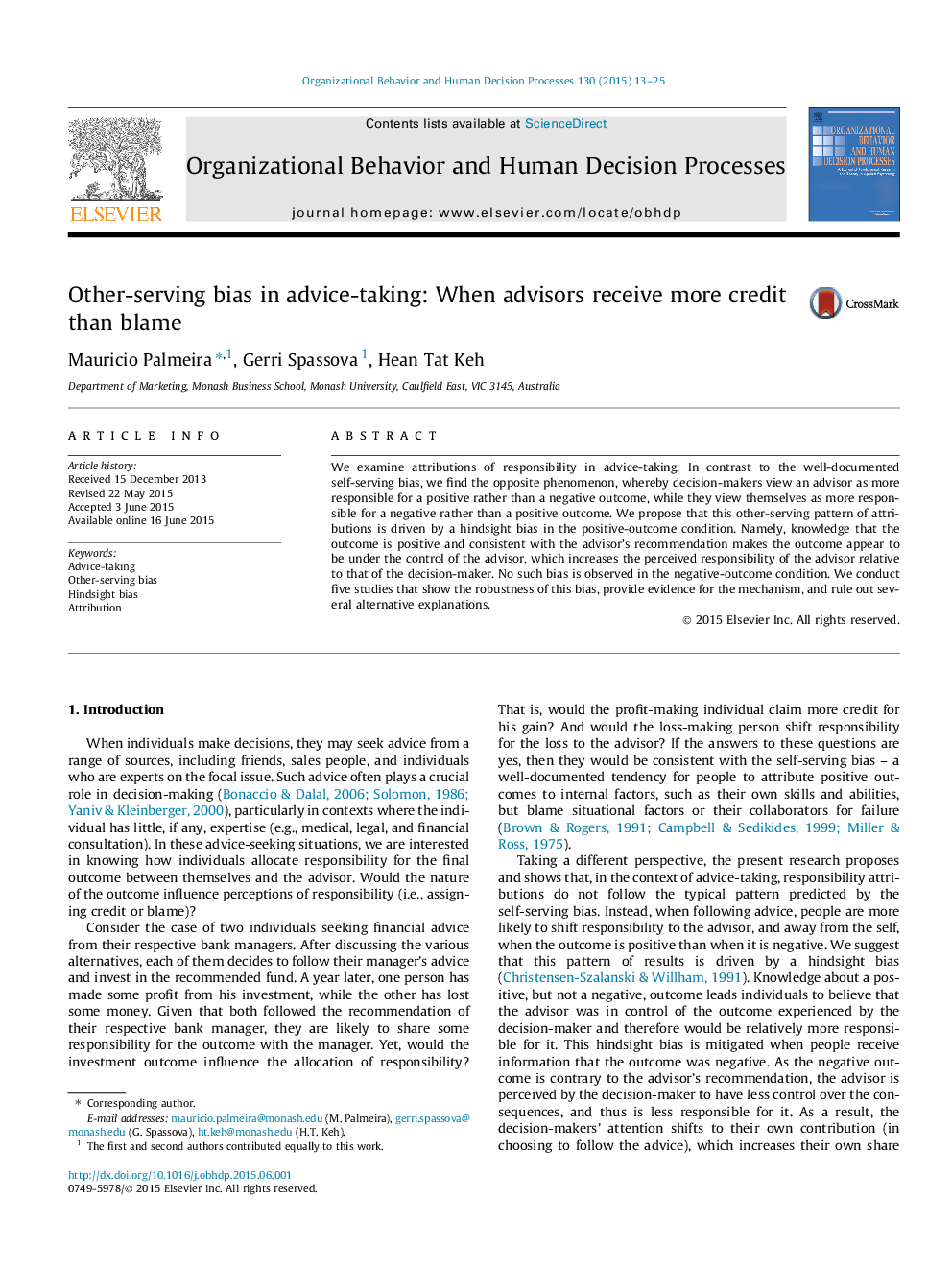| Article ID | Journal | Published Year | Pages | File Type |
|---|---|---|---|---|
| 888493 | Organizational Behavior and Human Decision Processes | 2015 | 13 Pages |
•We examine how people assign responsibility for outcomes in the advice-taking context.•Advisors are viewed as more responsible for positive than for negative outcomes.•Decision-makers take more responsibility for negative than for positive outcomes.•This other-serving bias is cognitively rather than motivationally driven.
We examine attributions of responsibility in advice-taking. In contrast to the well-documented self-serving bias, we find the opposite phenomenon, whereby decision-makers view an advisor as more responsible for a positive rather than a negative outcome, while they view themselves as more responsible for a negative rather than a positive outcome. We propose that this other-serving pattern of attributions is driven by a hindsight bias in the positive-outcome condition. Namely, knowledge that the outcome is positive and consistent with the advisor’s recommendation makes the outcome appear to be under the control of the advisor, which increases the perceived responsibility of the advisor relative to that of the decision-maker. No such bias is observed in the negative-outcome condition. We conduct five studies that show the robustness of this bias, provide evidence for the mechanism, and rule out several alternative explanations.
